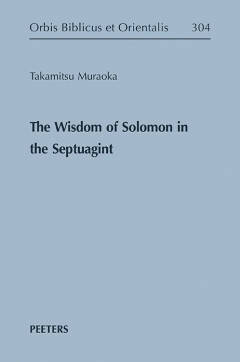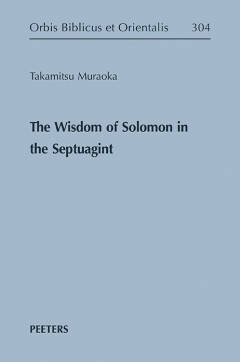
Bedankt voor het vertrouwen het afgelopen jaar! Om jou te bedanken bieden we GRATIS verzending (in België) aan op alles gedurende de hele maand januari.
- Afhalen na 1 uur in een winkel met voorraad
- In januari gratis thuislevering in België
- Ruim aanbod met 7 miljoen producten
Bedankt voor het vertrouwen het afgelopen jaar! Om jou te bedanken bieden we GRATIS verzending (in België) aan op alles gedurende de hele maand januari.
- Afhalen na 1 uur in een winkel met voorraad
- In januari gratis thuislevering in België
- Ruim aanbod met 7 miljoen producten
Zoeken
Omschrijving
In spite of the traditional mention of king Solomon in the title of the book, Wisdom of Solomon can be dated to the middle of the first century BCE and was probably written by a Jewish author in Alexandria. As such it is one of the most valuable representatives of the genre known as sapiential literature, along with books such as Proverbs, Qoheleth, or Ben Sira. Wisdom of Solomon markedly differs from Proverbs and Ben Sira, the two principal representatives of the genre, in that instead of a series of unconnected sayings we have here a logical sequence, a consistent theology. Among the Septuagint writings, the level of Greek displayed in the book is extremely high. Our annotated English translation is based on the critical edition prepared by J. Ziegler (1962). Since the book's two Syriac versions, i.e. Peshitta and Syrohexapla, demonstrate that in ancient times the document was read and studied extensively, the present study pays careful attention to them as well.
Specificaties
Betrokkenen
- Auteur(s):
- Uitgeverij:
Inhoud
- Aantal bladzijden:
- 240
- Taal:
- Engels
- Reeks:
- Reeksnummer:
- nr. 304
Eigenschappen
- Productcode (EAN):
- 9789042950863
- Verschijningsdatum:
- 18/11/2024
- Uitvoering:
- Hardcover
- Formaat:
- Genaaid
- Afmetingen:
- 165 mm x 250 mm
- Gewicht:
- 576 g

Alleen bij Standaard Boekhandel
+ 362 punten op je klantenkaart van Standaard Boekhandel
Beoordelingen
We publiceren alleen reviews die voldoen aan de voorwaarden voor reviews. Bekijk onze voorwaarden voor reviews.









